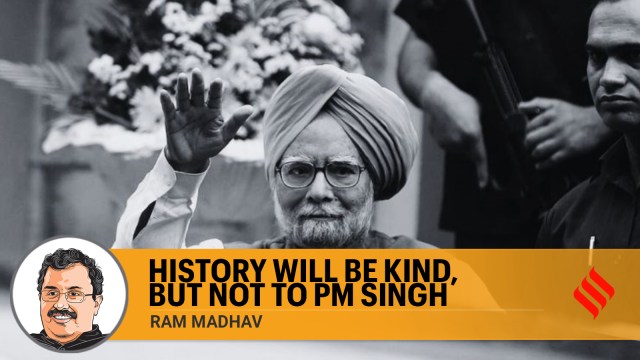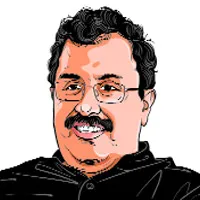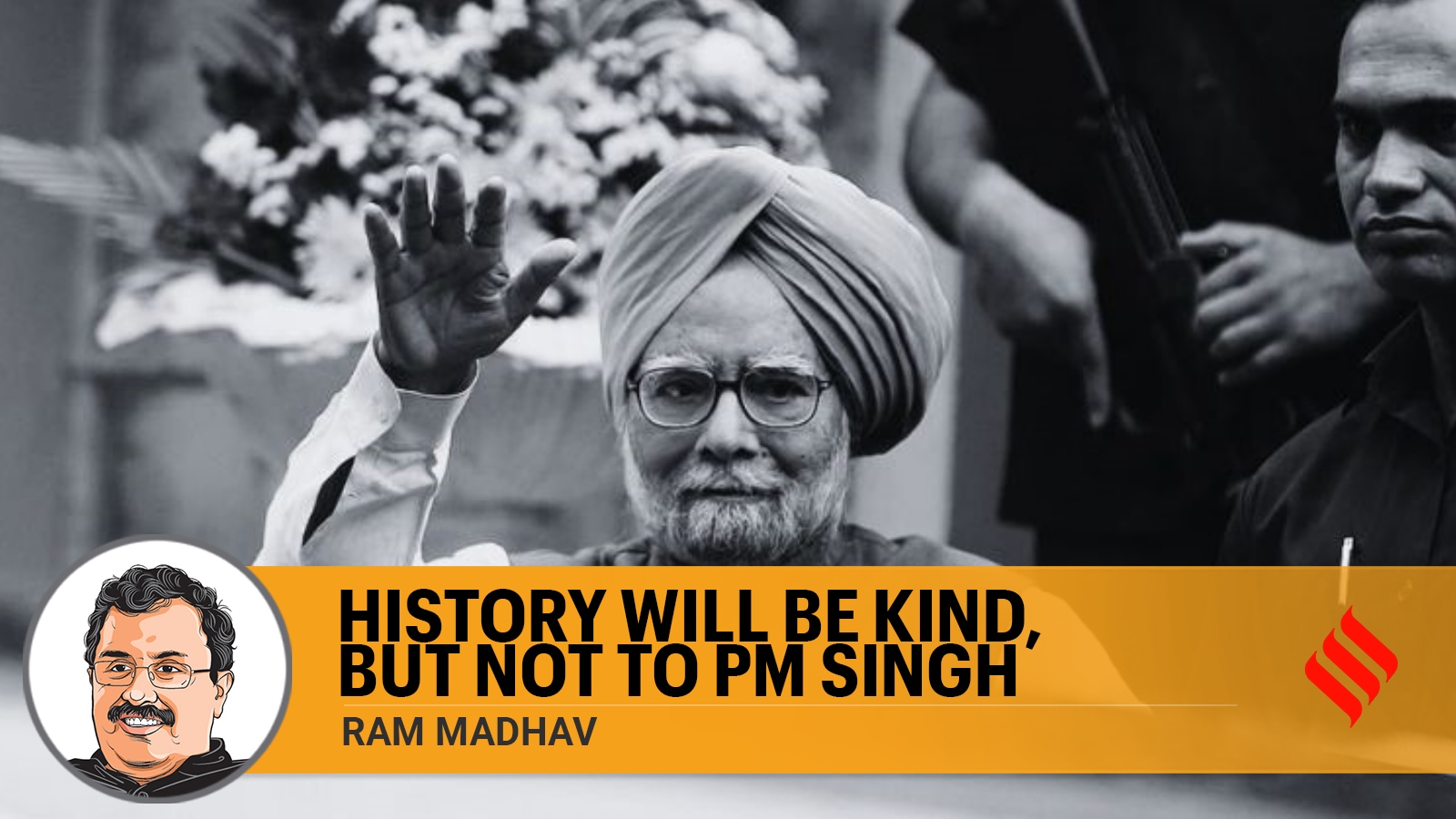Opinion by Ram Madhav
Dr Singh will be remembered kindly for rescuing the economy. But his silence in the face of corruption won’t be forgotten either


Dec 28, 2024 13:14 IST First published on: Dec 28, 2024 at 07:15 IST
“Who, me?” This was the revealing cover text in The Economist, over a photograph of Dr Manmohan Singh speaking on the phone, when he became the surprise choice for prime minister of the UPA government in 2004. Singh, who was the first non-Nehru family leader to serve two terms as prime minister and the first Sikh leader to rise to that coveted position, died this week at the age of 92.
In an age of extreme political rivalries, Singh will be remembered with respect and honour. A man of few words, Singh was a gentle human being and an accomplished economist and scholar, qualities that endeared him to people of the country. His personal integrity was always commendable — although his deafening silence over the corruption of his colleagues was described as “the art of taking bath with a raincoat on”. His humility was reflected in his final address to the nation, as he left the prime minister’s office in 2014: “I owe everything to this country, this great land of ours where I, an underprivileged child of Partition, was empowered enough to rise and occupy high office. It is both a debt that I will never be able to repay and a decoration that I will always wear with pride.”
Of the three prime ministers that Congress produced who didn’t belong to the Nehru family, Singh’s tenure of 10 years was the longest. Although he remained loyal to the Nehru family until his last breath, his greatest contribution was as finance minister under prime minister P V Narasimha Rao, from 1991 to 1996, with the decimation of the Nehruvian legacy of the socialist economic model. Interestingly, Singh was not the first choice for the post — Rao had wanted bureaucrat I G Patel for the job — but he was certainly the best choice. “People say I was an accidental prime minister, but I was also an accidental finance minister,” Singh once quipped. Those five years in the finance ministry were undoubtedly the most successful years for Singh, as he dismantled the license raj and led India into the age of globalisation.
As the country registered credible economic progress in early 2000s under the Atal Bihari Vajpayee government, Singh remained low-profile, failing to enter the Lok Sabha and settling for a seat in the Rajya Sabha. Despite all indices pointing to a period of good governance, the Vajpayee government lost badly in the 2004 Parliament election, winning just 138 seats, seven less than Congress. Congress president Sonia Gandhi’s surprise decision to forgo the post of prime minister led to the mantle falling on the shoulders of the unassuming Singh.
Singh’s loyalty, low profile and unassertive character were interpreted by many as the reason for him being chosen over many able colleagues, including frontrunners like Pranab Mukherjee. A seasoned politician and a statesman, Mukherjee never held Singh’s elevation against him and stood by him through the next six-seven years, not only as a minister in the Union cabinet, but also as an able manager and troubleshooter of a difficult coalition. Singh was not that lucky with some other colleagues who treated him shabbily, often bypassing him using their access to the power centres at 10 Janpath. Although the UPA regime was described as a duopoly, the real power remained with Sonia Gandhi.
To his credit, Singh managed to diligently steer the coalition during UPA-I. Riding over the pace set by the Vajpayee government, he took the economy to higher levels. MNREGA and the Right to Information Act were some of the major achievements of his government in the first term. Although the groundwork began during Vajpayee’s tenure, Singh successfully concluded the Indo-US nuclear deal, ending the country’s isolation in 2008.
But Singh’s success story came to a halt after that. The global recession of 2008 also hit the Indian economy badly, and the country reeled under inflation and economic slowdown. The GDP growth rate declined to 4 per cent at one stage. Singh’s last major success — although many disagree that the credit should go to him — was the UPA’s victory in the 2009 elections. While UPA-I won Singh laurels, UPA-II proved to be his undoing. Scandals like the 2G scam, coal scam, and telecom scam destroyed his government’s credibility. As elections approached, in an immature bid to show Singh that his authority was over, Rahul Gandhi publicly trashed an ordinance moved by Singh’s government in 2013 to save convicted legislators from disqualification.
Singh ended his tenure as prime minister, with a disastrous defeat for the Congress party in the 2014 elections, which reduced it to a historic low. Singh should have retired after that as he himself announced. But the party wanted him to continue in the Upper House where he spent several passive years before ill health forced him to withdraw.
most read
In 2004, The Economist called him “the unexpected new leader”. In 2009, Lal Krishna Advani called him “the weakest prime minister”. In 2014, his political aide Sanjay Baru, in a tell-all book about Singh’s tenure, called him “the accidental prime minister”. Five years later, in 2019, a movie was also made with the same title.
Manmohan Singh had hoped that “history would be kinder” to him. It will be, to the child of partitioned India who rose through hard work to the high office, to the honest and gentle soul who won not many enemies, to the finance minister who pulled India out of its socialist mess — but not, perhaps, to the bhishma pitamah who, as prime minister, placed loyalty above Raj Dharma.
The writer, president, India Foundation, is with the BJP. Views are personal
Why should you buy our Subscription?
You want to be the smartest in the room.
You want access to our award-winning journalism.
You don’t want to be misled and misinformed.
Choose your subscription package
© The Indian Express Pvt Ltd



